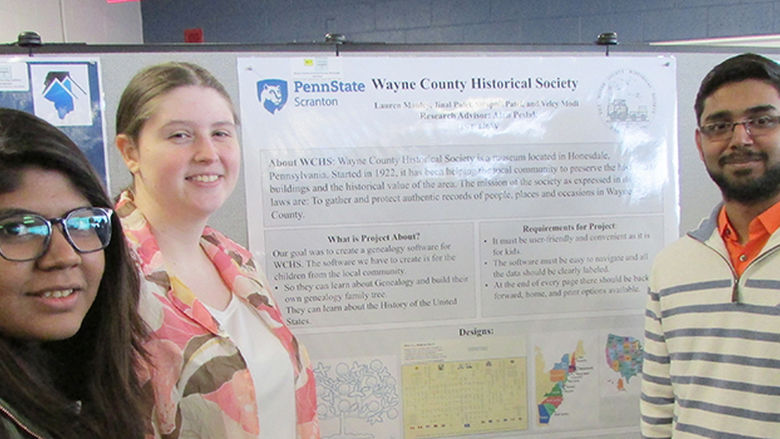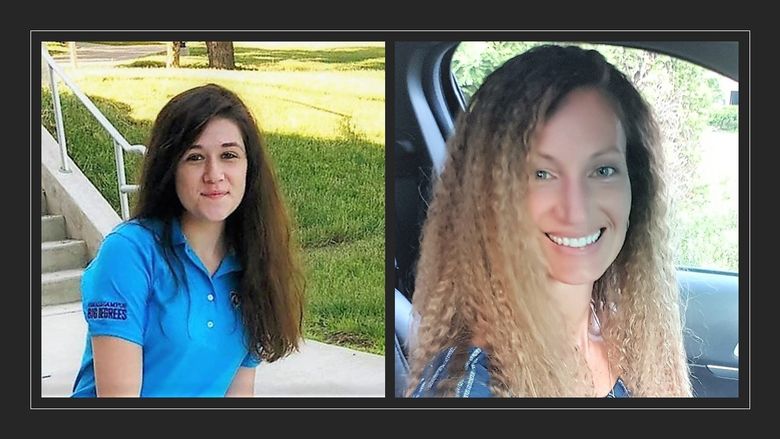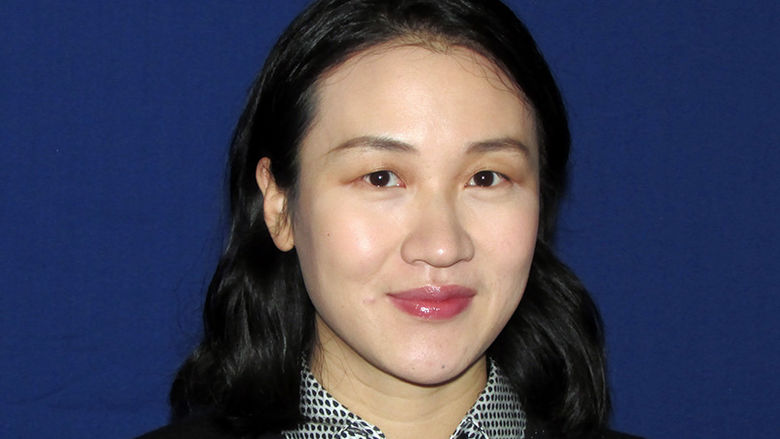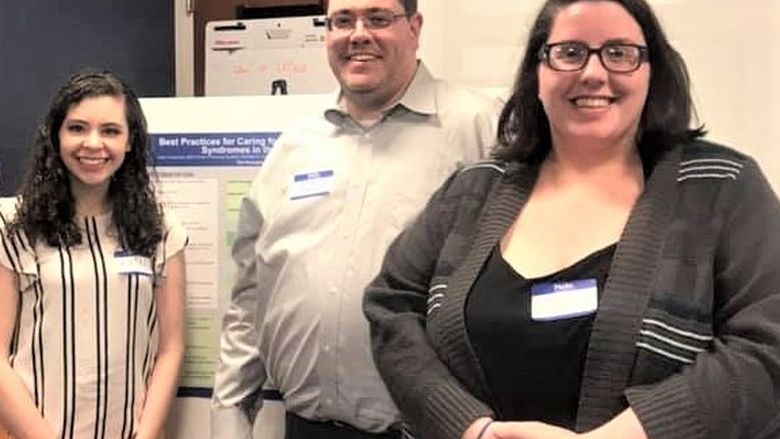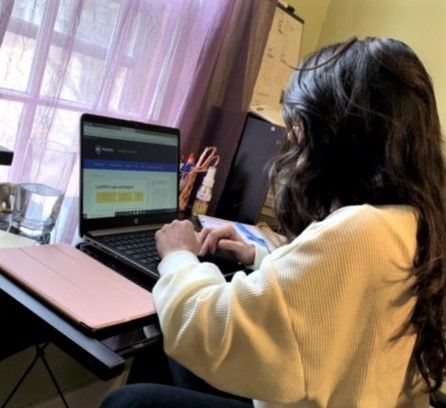
Recent psychology graduate Gina Romano spent the spring semester conducting a research study investigating whether mantra meditation could benefit students who suffer from test anxiety. Romano's own meditation practice inspired the study.
DUNMORE, Pa. — When mantra meditation was first suggested to Gina Romano as a way to combat the constant dread and anxiety she felt in the lead-up to any big exam, she was more than a little skeptical.
“I thought, ‘This isn’t real, I can’t do this. I can’t get my mind to stop thinking,’” she recalled with a laugh.
Eventually, though, she decided she had nothing to lose and gave it a try. It was a revelation, and she quickly became a convert.
Now, in hopes of helping others, the Penn State Scranton psychology graduate has made meditation the focus of an independent study research project.
Romano, 27, is examining the positive effects mantra meditation could have on students who suffer from test and presentation anxiety. Her own practice has allowed her to overcome those same fears and thrive academically. Going into the spring semester, her GPA was 3.68.
Mantra meditation relies on the repetition of a sound or saying — a mantra — to put one into a meditative state.
“I liked mantra because it gave me something to focus on, and more so because it’s really improved my study habits and my will to do it. I got more confident that I was going to do well on this exam or ace this presentation,” said Romano, who in the fall will begin pursuing her master’s degree in clinical mental health counseling at the University of Scranton, where she will serve as a full-time graduate assistant.
Mantra meditation relies on the repetition of a sound or saying — a mantra — to put one into a meditative state.
Advising Romano on the research project is Renae McNair, assistant teaching professor of psychology and program coordinator. The two have collaborated closely during the past few months.
“Gina is everything that my colleagues and I strive for in every student,” McNair said. “We want them to learn the subject matter and content of our courses, but we also want to encourage them to become critical thinkers. We want them to see their success and grow their self-esteem and self-efficacy through their successes. Gina shared with me that when she started at Penn State, a graduate degree seemed like something that was bigger than her, beyond her. Now, she is attending graduate school this fall, with a full assistantship as a graduate assistant. I am so proud of her, not only because of her project, but because of her dedication to success, and I can’t wait to see what she does in the future.”
“Dr. McNair believed in me from the very first meeting, and she’s just been an incredible mentor through this entire process,” said Romano, of Clarks Summit. “Any time I had a problem, she was right there to help me through it.”
An adult learner, Romano said returning to the classroom after a few years away was a bit daunting, resulting in her developing significant pre-exam anxiety.
“There’s just more pressure now. And what triggered a lot of the stress was the fact that I really wanted to do well,” Romano said. “For me, it was a lot of sleepless nights and constant rumination leading up to when that exam was put in front of me. And as much as there was that mental component, there was a physical reaction, too. Sweating, clammy hands, constant thinking, pit in your stomach.”
Help eventually came when Romano enrolled in McNair’s Psych 243: Well-Being and Positive Psychology course.
For her mantra, Romano chose the simple phrase, “Let Go.” It’s appropriately uplifting, and it allows her to say one word as she inhales and the other while exhaling.
The course’s curriculum delved into ways that people could be more resilient in the face of stress and adversity. That included readings on the neurocognitive benefits of mantra meditation.
Despite her initial skepticism, Romano decided to give it a try in her personal life since it seemed to be an easy introduction to meditation.
For her mantra, she chose the simple phrase, “Let Go.” It’s appropriately uplifting, and it allows her to say one word as she inhales and the other while exhaling.
“It needs to be something that makes you feel calm that you want to keep repeating to yourself. The thing about mantra meditation is you’re forcing your mind to think of one thing as you’re meditating and concentrating on your breathing technique,” she said. “Once I practiced it more, I was able to do it more. But it doesn’t happen overnight — it’s a lot of training and takes a lot of consistency.”
In time, Romano got into a daily routine and started to see real results in the classroom.
At first, she meditated before presentations, focusing on her breathing before and during them. When it produced the desired calming effect, she moved on to tests, which had always produced heart palpitations in the moments leading up to them.
“So, during those moments, I would say my mantra at my desk and focus on my breathing. That way, I was focusing on that rather than my heart racing,” she said. “If you can control your inside, chances are you can control your outside as well.”
Eventually, her practice improved all facets of her life, from reducing the stress of her job working with special needs students at New Story school in Throop, to helping her deal with “relatives I don’t really want to see” at family gatherings, she said with a laugh.
She meditates twice a day, including during her commute to work.
“I don’t put the radio on; I’m just breathing and hearing my breathing and hearing my mantra. I just try to stay within myself,” she said. “I find that it kickstarts my day and gets me going.”
As her senior year approached, Romano knew she wanted to incorporate meditation into a research project. After first considering gearing it around veterans suffering from PTSD, she and McNair ultimately decided to focus on fellow students struggling from test anxiety.
“We met and discussed the design, data collection, subjects and, ultimately, Gina decided this is something she wanted to pursue,” McNair said. “During the summer of 2019, Gina began the arduous process of learning how to complete and submit a protocol to the IRB (Institutional Review Board). Through her dedication to the project, rewriting and editing, she received IRB approval in the fall of 2019.”
From there, Romano began seeking out potential subjects through social media. In the end, she found 15 students, including one adult learner.
She conducted the first series of interviews at the beginning of the spring semester. Meeting each student individually, she asked them how test anxiety manifested itself, both mentally and physically. From there, she gave them a PowerPoint tutorial on mantra meditation, then encouraged them to try it on their own.
“It was very easy for them to understand how to do it,” Romano said. “But the main thing I stressed most to them is it needs to be done on their own terms and in their own way. It’s a method that can be played around with, whether you’re doing it Indian-style on the floor or lying on your bed in the dark.”
A month later, Romano met with the students again, this time asking them how their 30 days of meditation practice had gone, and whether it had changed their behavior toward exams.
After the interviews were recorded and transcribed, Romano and McNair analyzed the data in search of common themes, that would go into her final paper.
She was also among the poster presenters at the campus’ Undergraduate Research Web Showcase (this year’s online version of the Undergraduate Research Fair and Exhibition), and is submitting her research to the International Positive Psychology Association (IPPA) to present at its July 2021 conference in Vancouver.
“In terms of the findings, nothing is concrete just yet, but we have noticed it has helped some students learn more about mediation and its benefits, along with providing new studying strategies to combat test anxiety. I have also noticed many students feel as though it helps them in their personal and academic life,” said Romano, noting now is as good a time as ever to take up meditation, given the current unease people are feeling due to the COVID-19 coronavirus pandemic.
“I’m just hoping that for those 15 students, it helps them with their academic goals,” she continued. “And maybe it’s one of those pay-it-forward things where they share it with others — just the idea of keeping that positive mindset and being confident in themselves. I hope they can spread that around.”

